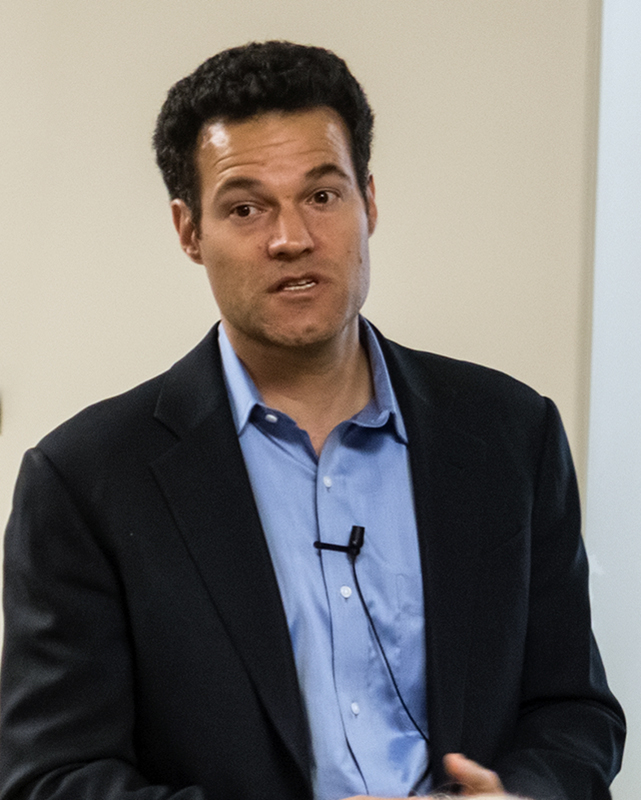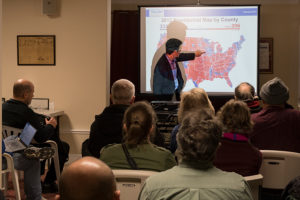Monday, February 27, 2017

Ben Tulchin, one of the city’s foremost political pollsters and consultants, was supposed to speak about how the Trump presidency is likely to affect San Francisco. Instead, Tulchin spent most of his time reviewing the national election in November, explaining how and why the Democrats lost the Presidency and made only minimal gains in Congress. Tulchin briefly reviewed the November election in California and, equally briefly, looked ahead to what California and San Francisco can expect in the age of Trump.
Tulchin criticized Hillary Clinton, saying her message was insufficiently simple (or simplistic) and asserting that she ended up running mostly on her resume. He documented her very poor showing among white voters without a college education, a much worse showing than Obama’s in 2012. A pollster for Bernie Sanders, Tulchin praised Sanders, particularly his message, and said nothing critical about him. Looking forward, Tulchin recommended that persons opposed to Trump continue to march and demonstrate, contribute to organizations on issues of concern, and contribute money to many candidates. Tulchin did not address how to know whether a campaign organization spends one’s financial contributions wisely, nor did he mention that as a political consultant he stands to profit from increased political contributions.

Considering the fact that Clinton won California over Trump by a 2-1 margin, Democrats did less well in Congressional and state legislative races than might have been expected, picking up no Congressional seats and winning only three of seven competitive State Assembly races. Tulchin noted potential candidates for Governor in 2018 and suggested that the two who survive the primary to meet in the runoff could well be two Democrats. He said four Congressional seats are potentially competitive. He said budget cuts proposed by Trump would, if instituted, affect California disproportionately, and repeal of the Affordable Care Act (“Obamacare”) would alone cost the state $15 billion.
Tulchin offered a list of possible mayoral candidates in San Francisco in 2019 and said the city was becoming “quite a bit” more politically moderate. He said the city receives $470 million directly from the federal government and $915 million more through the state — funds that could be in at least partial jeopardy with a hostile administration in Washington. Tulchin noted that San Francisco voted for Clinton over Trump by 85% to 9%, the lowest vote ever for a Republican presidential candidate.